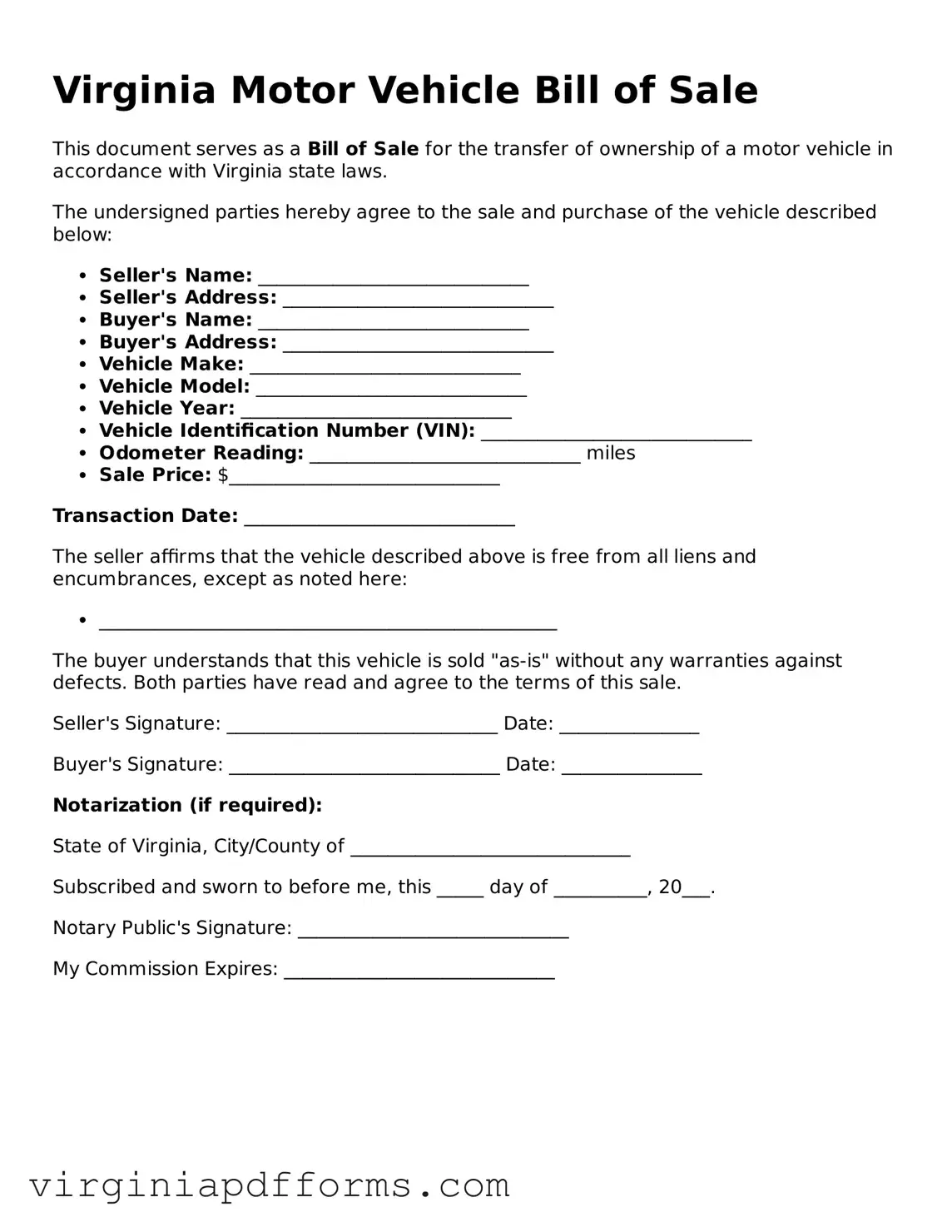Attorney-Approved Virginia Motor Vehicle Bill of Sale Document
The Virginia Motor Vehicle Bill of Sale form serves as a crucial document in the transfer of ownership for motor vehicles within the state. This form provides essential details about the transaction, including the buyer and seller's information, vehicle specifications, and sale price. Understanding its importance can help ensure a smooth and legally compliant transfer of vehicle ownership.
Access My Document Now

Attorney-Approved Virginia Motor Vehicle Bill of Sale Document
Access My Document Now

Access My Document Now
or
Free Motor Vehicle Bill of Sale File
Need this form wrapped up fast?
Finish Motor Vehicle Bill of Sale online — edit, save, download without effort.